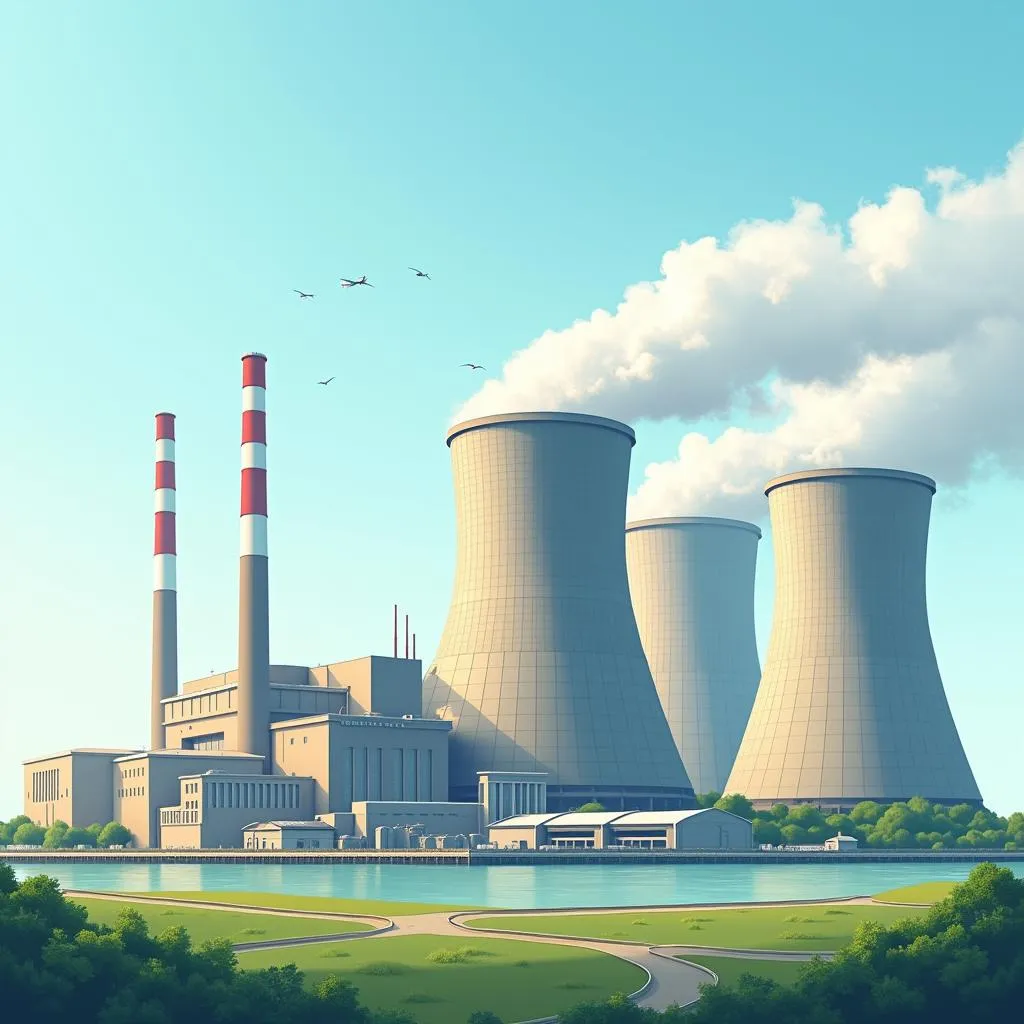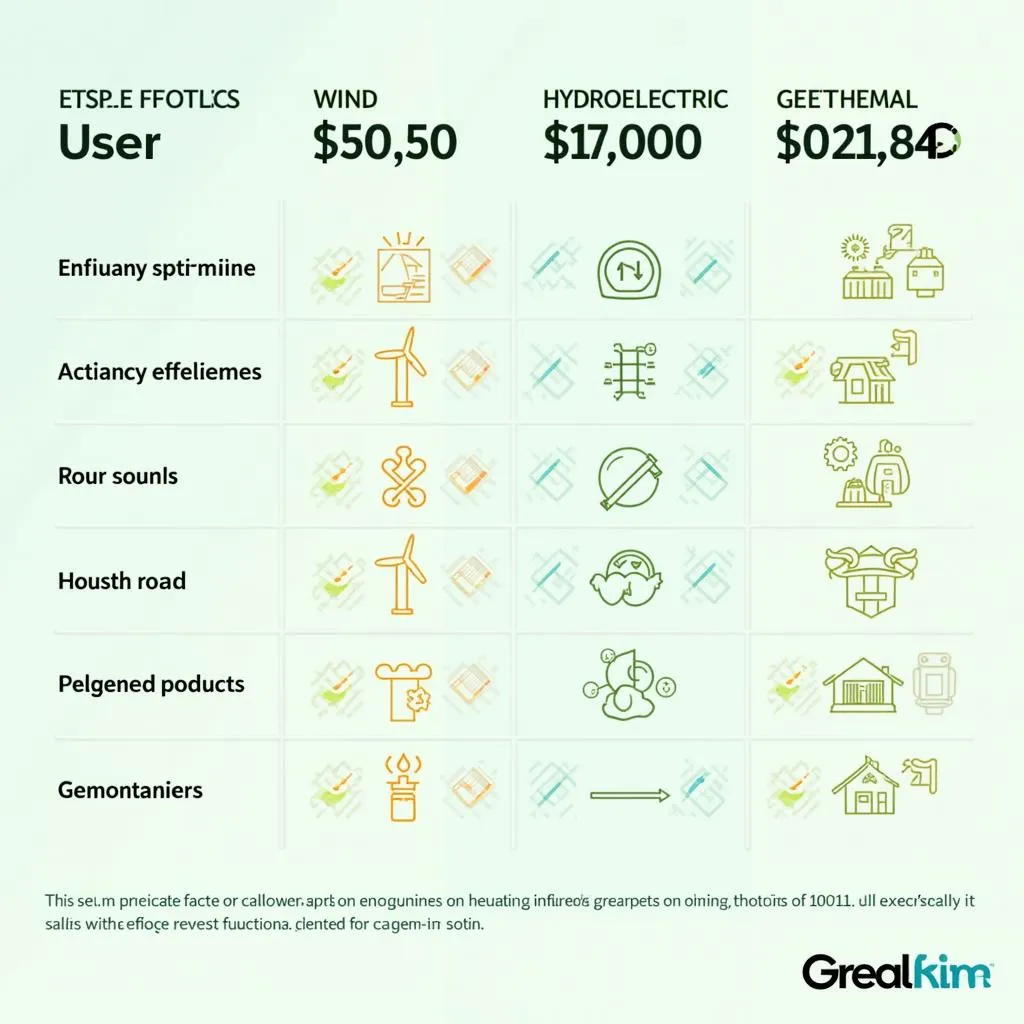Nuclear energy has been a topic of intense debate in recent years, particularly in the context of solving the global energy crisis. This subject has appeared in various forms in IELTS Writing Task 2 exams, reflecting its relevance to contemporary environmental and energy policy discussions. Based on past exam trends and the current global energy landscape, it’s highly likely that questions related to nuclear energy will continue to feature prominently in future IELTS tests.
Nội dung bài viết
Let’s examine a sample question that encapsulates this topic:
Some people think that nuclear energy is the answer to the world’s increasing demand for energy. Others believe it is too dangerous and alternative forms of energy should be developed. Discuss both views and give your own opinion.
Analyzing the Question
This question presents a balanced approach to the nuclear energy debate, asking candidates to discuss both perspectives:
- The view that nuclear energy can meet growing global energy demands
- The concern about its safety and the preference for alternative energy sources
The task also requires you to provide your personal opinion on the matter. This type of question tests your ability to present a well-rounded argument, consider multiple viewpoints, and articulate your own stance based on the evidence presented.
Is homeschooling a viable alternative to traditional schooling? While this topic might seem unrelated to nuclear energy, both subjects involve weighing the pros and cons of alternative approaches to societal challenges, be it in education or energy production.
Sample Essay 1: Band 8 Response
The global energy crisis has sparked a heated debate about the role of nuclear power in meeting the world’s growing energy needs. While some advocate for nuclear energy as a solution, others argue that its risks outweigh its benefits and that alternative energy sources should be prioritized. This essay will examine both perspectives before presenting my own view on this contentious issue.
Proponents of nuclear energy argue that it offers a reliable and efficient source of power with minimal carbon emissions. Nuclear power plants can generate vast amounts of electricity without contributing to greenhouse gas emissions, making them an attractive option for countries seeking to reduce their carbon footprint while meeting increasing energy demands. Moreover, nuclear energy is not dependent on weather conditions, unlike solar or wind power, ensuring a consistent energy supply.
On the other hand, critics of nuclear power emphasize the potential dangers associated with its use. The catastrophic accidents at Chernobyl and Fukushima serve as stark reminders of the devastating consequences of nuclear plant failures. Additionally, the problem of safely storing radioactive waste for thousands of years poses significant environmental and health risks. These concerns have led many to advocate for the development of safer, renewable energy sources such as solar, wind, and hydroelectric power.
In my opinion, while nuclear energy does offer some advantages in terms of efficiency and low carbon emissions, the risks associated with its use are too great to ignore. The potential for catastrophic accidents and the long-term environmental impact of nuclear waste storage outweigh the benefits of nuclear power. Instead, I believe that investment in renewable energy technologies and improving energy efficiency should be prioritized. These alternatives offer cleaner, safer options for meeting our energy needs without the inherent risks of nuclear power.
In conclusion, although nuclear energy presents a potential solution to the world’s growing energy demands, its associated risks make it a controversial choice. While it offers efficient, low-emission power generation, the dangers of accidents and waste management cannot be overlooked. Ultimately, I believe that focusing on developing and implementing renewable energy sources is a more sustainable and responsible approach to addressing the global energy crisis.
(Word count: 345)
 Nuclear energy power plant illustration
Nuclear energy power plant illustration
Sample Essay 2: Band 7 Response
The debate over nuclear energy as a solution to the world’s increasing energy demands is a complex and controversial topic. This essay will discuss the arguments for and against nuclear power before presenting my personal viewpoint.
Supporters of nuclear energy argue that it is a powerful and efficient source of electricity that can meet the growing global energy needs. Nuclear power plants can generate large amounts of electricity without producing greenhouse gases, making them an environmentally friendly option compared to fossil fuels. Additionally, nuclear energy is not dependent on weather conditions, providing a stable and reliable power supply.
However, opponents of nuclear power raise serious concerns about its safety and long-term environmental impact. The disasters at Chernobyl and Fukushima have shown the devastating consequences of nuclear accidents. Furthermore, the issue of storing radioactive waste safely for thousands of years remains unresolved, posing potential risks to future generations. These factors have led many to advocate for the development of alternative energy sources such as solar and wind power.
In my opinion, while nuclear energy offers some benefits in terms of efficiency and low carbon emissions, the risks associated with its use are too significant to ignore. The potential for catastrophic accidents and the challenge of managing nuclear waste outweigh the advantages of nuclear power. I believe that investing in renewable energy technologies and improving energy efficiency are safer and more sustainable approaches to addressing our energy needs.
To conclude, although nuclear energy presents a possible solution to meet increasing energy demands, its associated risks make it a controversial choice. While it offers efficient power generation with low emissions, the dangers of accidents and waste management are serious concerns. Ultimately, I believe that focusing on developing and implementing renewable energy sources is a more responsible approach to tackling the global energy crisis.
(Word count: 309)
Sample Essay 3: Band 6 Response
The use of nuclear energy to solve the world’s growing energy needs is a topic that many people have different opinions about. In this essay, I will discuss both sides of this issue and give my own thoughts.
Some people think nuclear energy is a good solution because it can produce a lot of electricity without creating pollution like coal or oil. Nuclear power plants don’t release greenhouse gases, so they don’t contribute to climate change. Also, nuclear energy is reliable and can work all the time, unlike solar or wind power which depend on the weather.
However, other people believe nuclear energy is too dangerous to use. They worry about accidents like what happened at Chernobyl and Fukushima, which caused a lot of damage and hurt many people. Another problem is that nuclear waste stays dangerous for a very long time, and we don’t know how to store it safely forever. These people think we should focus on developing safer energy sources like solar and wind power instead.
In my opinion, I think the dangers of nuclear energy are too big to ignore. Even though it can produce a lot of power without pollution, the risk of accidents and the problem of waste are very serious. I believe it’s better to invest in renewable energy and find ways to use less energy overall. This seems like a safer way to solve our energy problems without taking big risks.
To sum up, nuclear energy has both good and bad points as a solution to our energy needs. While it can produce a lot of clean power, it also has big safety risks. In the end, I think it’s better to focus on safer and more sustainable ways to produce energy for the future.
(Word count: 282)
The rise of alternative education methods is similar to the exploration of alternative energy sources in that both seek innovative solutions to longstanding challenges, whether in education or energy production.
Explanation of Band Scores
Band 8 Essay:
This essay demonstrates excellent coherence and cohesion, presenting a clear and well-developed argument. The ideas are logically organized, with each paragraph focusing on a specific aspect of the debate. The use of advanced vocabulary and complex sentence structures is evident throughout the essay. The conclusion effectively summarizes the main points and presents a clear personal opinion. The essay shows a sophisticated approach to the topic, considering multiple perspectives before arriving at a well-reasoned conclusion.
Band 7 Essay:
This essay presents a clear and well-organized argument, with good use of paragraphing to separate different ideas. The vocabulary is appropriate and varied, although not as sophisticated as in the Band 8 essay. The essay demonstrates a good understanding of the topic and presents a clear personal opinion. While the ideas are well-developed, they lack some of the nuance and depth seen in the Band 8 essay. The conclusion effectively summarizes the main points and restates the writer’s opinion.
Band 6 Essay:
This essay addresses the task adequately, presenting relevant ideas and a personal opinion. The organization is generally logical, although the paragraphs are less well-developed compared to the higher band essays. The vocabulary and sentence structures are simpler, with some repetition of ideas and phrases. While the essay covers the main points of the debate, it lacks the depth and sophistication of the higher band essays. The conclusion summarizes the main ideas but could be more effectively linked to the rest of the essay.
 Renewable energy sources comparison chart
Renewable energy sources comparison chart
Key Vocabulary to Remember
-
Energy crisis (noun) – /ˈenərdʒi ˈkraɪsɪs/ – A situation of shortage in the supply of energy resources to an economy.
-
Nuclear power (noun) – /ˈnjuːkliər ˈpaʊər/ – The use of nuclear reactions to produce electricity.
-
Renewable energy (noun) – /rɪˈnjuːəbəl ˈenərdʒi/ – Energy from a source that is not depleted when used, such as wind or solar power.
-
Catastrophic (adjective) – /ˌkætəˈstrɒfɪk/ – Involving or causing sudden great damage or suffering.
-
Radioactive waste (noun) – /ˌreɪdiəʊˈæktɪv weɪst/ – Waste material containing radioactive substances.
-
Carbon footprint (noun) – /ˈkɑːbən ˈfʊtprɪnt/ – The amount of carbon dioxide released into the atmosphere as a result of the activities of a particular individual, organization, or community.
-
Sustainable (adjective) – /səˈsteɪnəbəl/ – Able to be maintained at a certain rate or level.
-
Efficient (adjective) – /ɪˈfɪʃənt/ – Achieving maximum productivity with minimum wasted effort or expense.
-
Greenhouse gases (noun) – /ˈɡriːnhaʊs ˈɡæsɪz/ – Gases that contribute to the greenhouse effect by absorbing infrared radiation.
-
Alternative energy (noun) – /ɔːlˈtɜːnətɪv ˈenərdʒi/ – Energy derived from non-traditional sources such as wind or solar power.
The benefits and drawbacks of homeschooling can be compared to the pros and cons of nuclear energy, as both topics involve weighing potential advantages against possible risks in important societal decisions.
In conclusion, the debate over nuclear energy as a solution to the global energy crisis remains a complex and relevant topic for IELTS Writing Task 2. As you prepare for your exam, consider practicing with similar questions that explore the balance between technological advancement and environmental safety. Some potential future topics might include:
- The role of nuclear fusion in future energy production
- Comparing the environmental impact of nuclear power versus fossil fuels
- The economic implications of transitioning from nuclear power to renewable energy sources
Remember to structure your essays clearly, provide balanced arguments, and support your points with relevant examples. Practice writing essays on these topics and consider sharing them in the comments section below for feedback and discussion. This active engagement will help you develop the skills needed to excel in the IELTS Writing Task 2.


